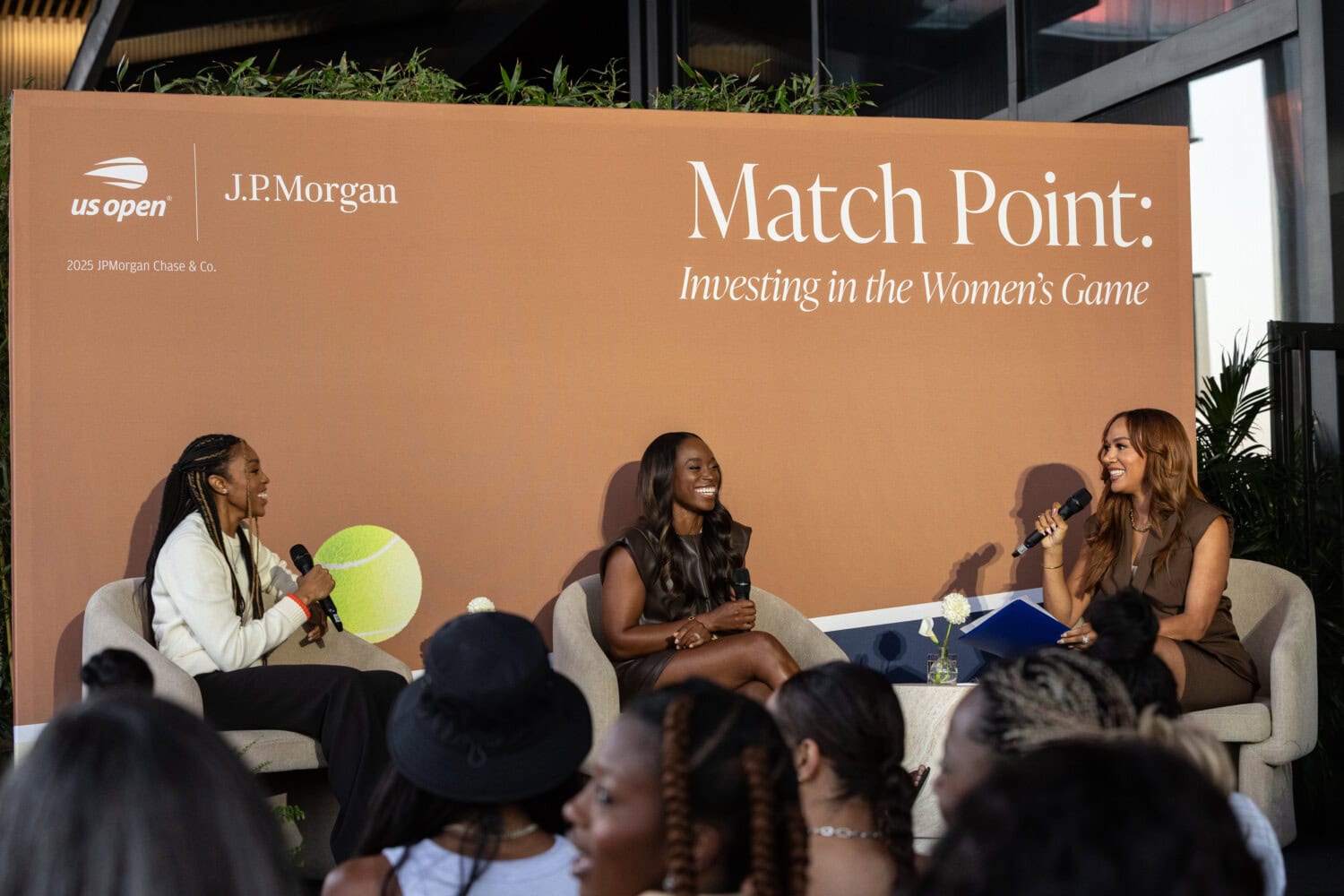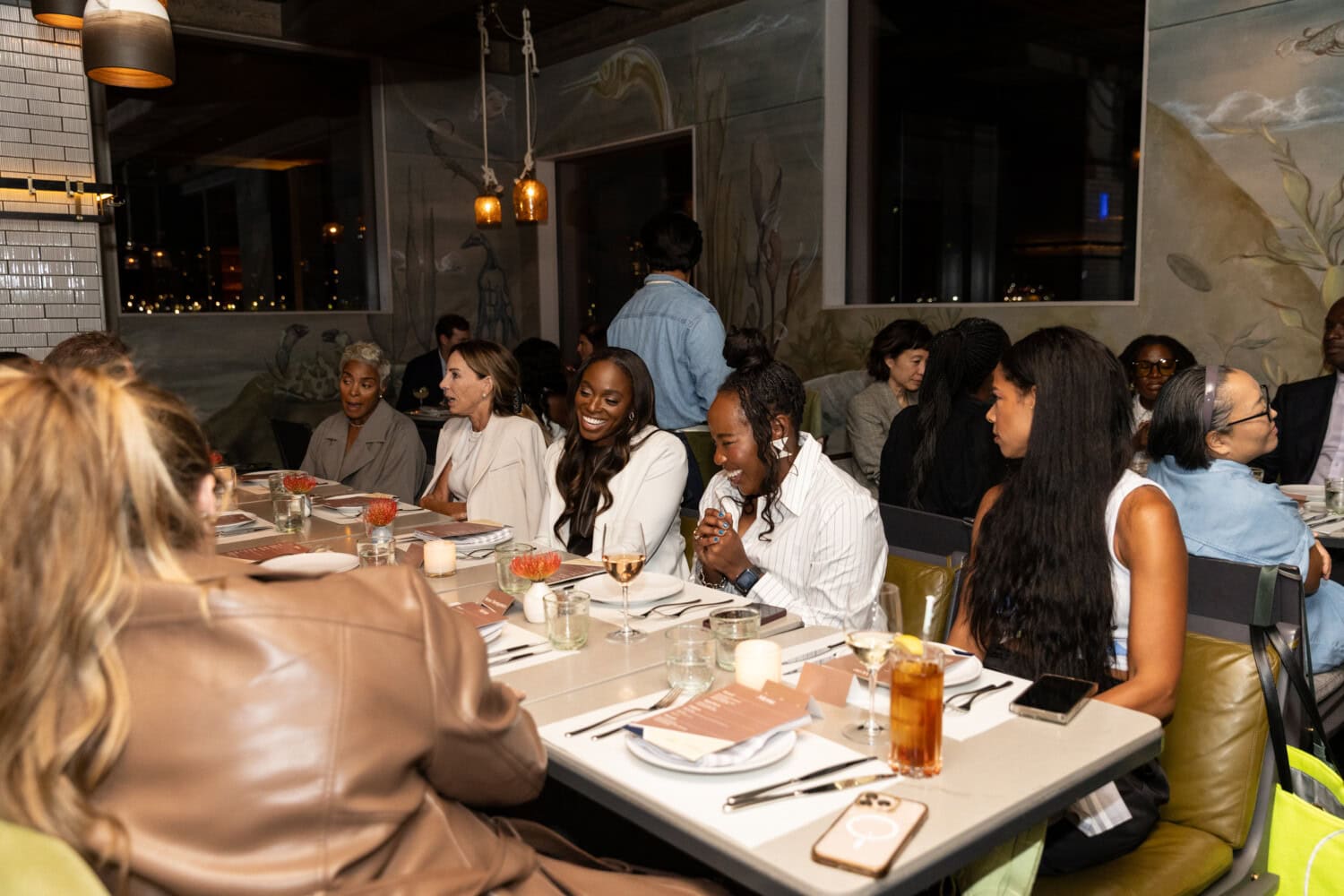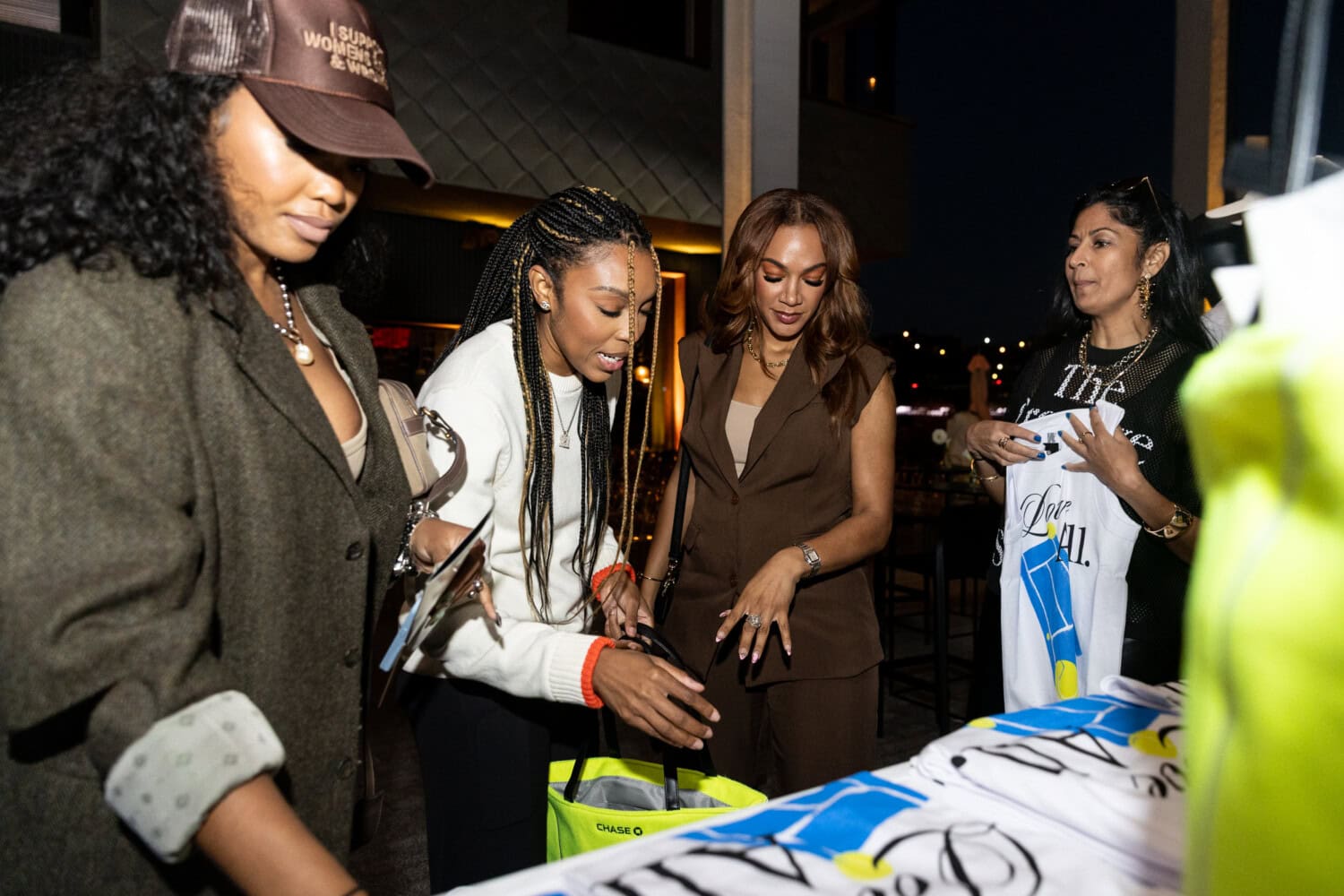Ahead of the US Open finals, J.P. Morgan brought together powerhouses from tennis, culture, and entertainment for a night to remember.
The business of women’s sports is something of a marvel right now. A Deloitte study published in March revealed that global revenue nearly doubled from $981 million in 2023 to $1.88 billion the following year, with an impressive $2.35 billion projected for 2025. Everyone wants a piece of the growth, but is everyone prepared to invest more than monetary resources to ensure the industry isn’t perceived as trendy?
Thankfully, we don’t have to question that with J.P. Morgan Chase, as the financial services company remains firmly committed to backing gutsy leaders leveraging their platform for the cause. From the Final Four in Tampa to the opening weeks of the Golden State Valkyries’ historic inaugural season, Boardroom has been on location with them for some of the most important moments on the women’s sports calendar. To celebrate the culminating days of the US Open, J.P. Morgan Chase brought together some of the most influential names in sports, business, and culture for a dinner and panel discussion featuring Sloane Stephens, Renee Montgomery, and moderated by Ros Gold-Onwude.
Among the 100 people in attendance at The Fulton at Pier 17 included popular sports content creators like Aliyah Funschelle and Greydy Diaz, and Kate Schiff, Head of Sports & Entertainment Marketing at JPMorganChase. The motive behind the gathering was to discuss the impact of women’s tennis and how its lessons can spark growth across all women’s sports.
The evening also featured pieces from LOVE ALL, the new Chase x Round21 capsule by New York textile artist Shakira Javonni. The four-piece limited collection is highlighted with a tote bag that resembles and is made from tennis ball material, and a signature tee that pays tribute to Althea Gibson, who broke the color barrier in professional tennis 75 years ago. Founded by Jasmine Maietta, the brand connects artists, athletes, and fans to express stories and individual identity through products and experiences that represent the consumer’s values.

When a $3.4 million check lands in your lap, it’s life-changing – not just for what it means in the moment, but for the doors it can open when you see money as more than a prize and a culmination of something you’ve worked your entire life to achieve. Such was the case eight years ago when Stephens, the 2017 US Open champion, stood inside Arthur Ashe Stadium and held that check – her first major prize purse. At the time, she had no idea how she’d spend it. But fast forward to now, and she still has that money and more.
“I tried to invest smartly,” she told the crowd. “I tried to save as much money as possible. I’m not one of those pros who spent it all. I’m proud to say I still have it. And I’ve been able to use it to fund things I care about – my foundation, companies I believe in, founders I love.”
The Sloane Stephens Foundation, which was funded entirely out of her own pocket, is 12 years strong (a “middle schooler,” she joked) and was just honored with the 2025 Muhammad Ali Humanitarian Award.
For women athletes, that first major payout isn’t just a reward. It’s a springboard, it’s capital, and capital creates opportunity.
No one knows that better than Montgomery, part owner of the WNBA’s Atlanta Dream. Today, investing in women’s sports is hot between ownership bids, record-setting viewership, and valuation leaps, But Montgomery was in before all the buzz.

“A lot of people didn’t see the vision. They didn’t think women’s sports could be as big. Some folks wait until others invest then they jump in when the risk feels lower. That’s never been me.”
Montgomery’s leap was more so personal than financial. To become an owner, she had to walk away from the game she loved, while still at the top of it and in near-perfect form.
“When Cathy [Engelbert] asked if I was retiring to join the bid, it was real. I had to say goodbye to my playing career to even have the chance to be an owner. That was the cost of the table stake. But it was worth it. For me, this was legacy.”
WNBA team valuations have exploded in recent years, soaring over $300 million and some reportedly nearing half a billion.
“If I had the money back then, I would’ve invested in every single women’s sports league I could. We knew this was coming,” Montgomery added.
When we talk about investment in women’s sports, too often the conversation stops at money. But for women building businesses, owning teams, and shaping culture from the ground up, investment means more than capital. It begins with conviction and strong community.
“Before I started a business, I had no idea how hard it was to raise money, how brutal it was to figure out a cap table,” Stephens said. “I played tennis, why would I know any of that? But seeing my friends, women I admire, go through it? I realized there’s no real support system for female founders.”
Instead of just watching from the sidelines, Stephens, who also lends her talents as a tennis analyst on television, built a solution. When her friend and founder of bag company Dagne Dover started raising, Stephens rallied a small group of women from the tennis world.
“I said, ‘Let’s do a practice SPV, a small amount. We’ll figure it out together.’ We brought in six or seven women to invest – and for most of them, it was their first time. But it was impactful. Even if it was small, it was real support. That’s how you build community and power in sports and business.”
It’s not lost on Stephens how wide the gap still is between athletes in the spotlight and the structural knowledge required to build beyond it. Today, more people want to be in the women’s sports ecosystem — from investors to advertisers and even creators shifting their focus just on covering women’s sports. But the challenge now is discernment: who’s really invested, and who’s just here for the moment?
“We need more people like Renee,” Stephens said. “People who truly believe. Not just buy a team because it’s trending, but because they love the game. Renee gave up her career to own a team. That’s commitment. That’s the kind of passion that sustains this movement.”

Montgomery co-signed the sentiment, and added one of her signature rants for good measure.
“If you’re going to invest in women’s sports, don’t make it corny. I hate when I see a commercial with some soft ballad playing, like, ‘This one’s for the girls.’ That’s not how I feel when I’m going into battle. That’s not how we play. Give us the hard-hitting hero shots. Give us the same creative investment you’d give the men.
“We need the hottest songs. The best directors. The coolest campaigns. You want young girls to pick female athletes as their role models? Make them look as cool as the men. That’s influence. That’s culture.”
Because representation isn’t just about being seen. It’s about being seen right.